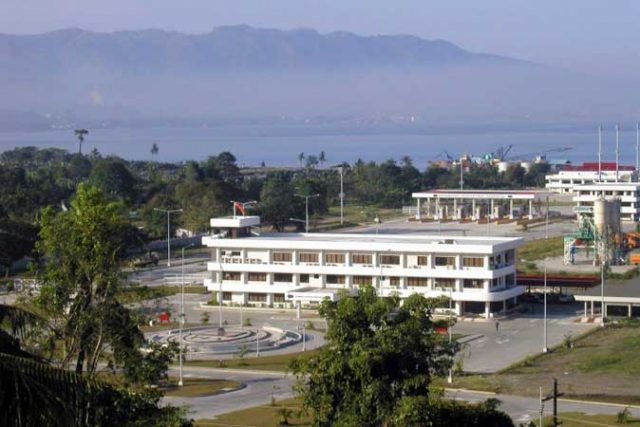THE economic recovery remains hindered by the persistence of high infection numbers and the slow pace of vaccination relative to elsewhere in Asia, according to analysts from HSBC Ltd., who projected a 75% vaccination rate for the Philippines sometime around April 2024.
The timing of that milestone would make the Philippines the third-slowest among Asia Pacific vaccination programs ahead of only Vietnam and Bangladesh, which are expected to achieve herd immunity by the end of 2025.
“Because of the slow pace of vaccination, we continue to see the Philippine economy remaining on a slow path to post-pandemic recovery because currently, the daily infection cases in the Philippines continue to stay at relatively elevated levels as compared to the rest of Asia,” Fan Cheuk Wan, chief investment officer for Asia at HSBC Private Banking and Wealth and Management, said in a virtual briefing on Tuesday.
“We do expect the accelerated pace of vaccination amid improved vaccine supply will help to support the consumption recovery later this year,” she added.
In March, HSBC Research downgraded its growth outlook this year for the Philippines to 6.3% from the 6.5% forecast it issued in January. Both forecasts are near the low end of the government’s 6-7% growth target for the year.
Separately, ANZ Research in a note Tuesday said the country’s “constrained” policy response will also hinder its recovery efforts.
“COVID-19 can pose a key macroeconomic risk, but mainly for middle- and lower-income economies where the policy response might be more constrained. This includes Thailand, the Philippines and Malaysia,” it said.
According to the Asian Development Bank data as of May 31, the Philippines’ pandemic-related measures amounted to $30.323 billion or 8.59% of its 2019 gross domestic product (GDP). This is bigger than that of Vietnam (7.92%) but much smaller compared to measures enacted by Indonesia (11.35%), Malaysia (21.51%), Singapore (30.52%), and Thailand (19.42%).
House Bill 9411, representing the third stimulus package, known informally as Bayanihan III, hopes to allocate P401 billion for the economic recovery. It would be larger by far than the previous two packages if signed without substantial reductions. The measure remains pending at the committee level in the Senate.
The Palace has described Bayanihan III as not necessary for the moment as funds remain available from the 2021 budget and previous stimulus packages. Finance Secretary Carlos G. Dominguez, III said earlier this month that the economic team can only fund a P173-billion stimulus package this year if the fiscal deficit is not to exceed a deficit cap of 9.3% of GDP.
ANZ Research in May downgraded its growth outlook for the Philippines to 4.8% from the 7.1% estimate it gave in March.
In 2020, the economy contracted by a record 9.6% due to the impact of the pandemic, the worst performance in Southeast Asia.
Another roadblock to recovery was the fresh wave of infections earlier this year, ANZ said.
“The labor force in the region’s lower per-capita economies is suffering from weak wage growth, high unemployment or a combination of both. In the Philippines, around a quarter of the labor force is now unemployed or underemployed,” it said.
Infections surged once more in March and April, with daily new cases exceeding 10,000 at the peak. The government responded by raising the quarantine settings for Metro Manila and surrounding provinces. These restrictions were gradually eased and the so-called NCR (National Capital Region)-Plus region is now observing a more relaxed set of restrictions known as general community quarantine.
New cases totaled 5,249 Tuesday to bring the total infections to 1.364 million. Active cases were tallied at 55,847.
BSP HIKES SEEN BY 2022
HSBC’s Ms. Fan said the bank expects the first rate hike by the Bangko Sentral ng Pilipinas (BSP) by the first quarter of 2022, projecting a 75 basis-points (bps) move in policy rates next year to 2.75% by the end of 2022.
She said the central bank will continue to be “cautious” in setting policy even when it starts raising interest rates, with an eye towards inflation. The central bank’s overnight reverse repurchase rate was 4% before the 25-bps rate cut implemented as a precautionary measure as the pandemic was taking hold in February 2020.
Ms. Fan cautioned that financial markets could experience “increased volatility” in the coming months as the Fed decides the timing of its taper.
She expects the Philippines to be “more resilient” when the taper happens compared to 2013, when the Fed’s announcement that it will wind down its bond purchasing program triggered sharp outflows from emerging markets.
“This time, I think the strong reserves will provide a critical support for the Philippine economy to withstand market uncertainty. We do not expect to see significant turbulence in the Philippine market on the back of the Fed tapering,” she added. — Luz Wendy T. Noble

















